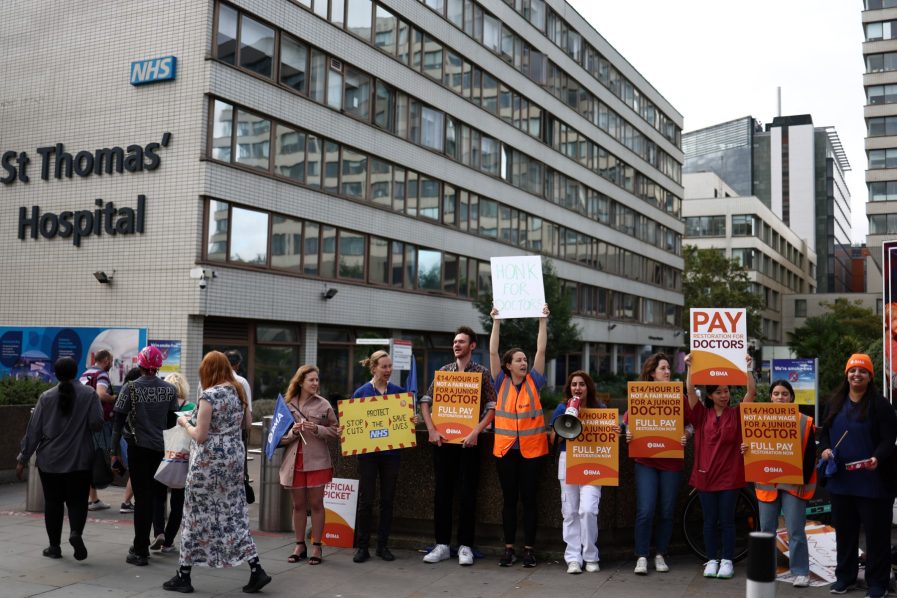Junior doctors in England’s hospitals have initiated their latest strike on Friday, while the government asserts that their demand for a 35-percent salary increase will only have negative consequences for patients.
The four-day strike has been launched after healthcare authorities estimated that the recurrent industrial actions have led to a cost of £1 billion ($1.2 billion) to the publicly funded healthcare system.
Junior doctors, who are physicians with substantial experience but not yet senior specialists, comprise roughly half of the medical workforce in UK hospitals.
This marks their fifth round of industrial action, commencing at 7:00 a.m. (0600 GMT), and is set to continue until 7:00 a.m. on Tuesday.
Health Secretary Steve Barclay has expressed his strongest criticism to date towards the doctors who have declined the government’s offer of a six-percent raise along with a one-time payment of £1,250.
In an article for the Daily Mail, he accused the British Medical Association (BMA), which represents junior doctors, of acting irresponsibly.
He emphasized that the strike’s impact primarily affects patients and adds more strain on their colleagues.
Nonetheless, doctors on the picket lines outside a central London hospital contend that they are left with no alternative but to strike, accusing the government of refusing negotiations.
Junior doctor Sumi Manirajan stated, “Doctors are tirelessly working to reduce waiting lists. The government is the party unwilling to engage in discussions.”
Manirajan, who is also the deputy co-chair of the BMA’s junior doctor committee, added, “We are severely understaffed, and everyone is on the verge of exhaustion.”
The National Health Service (NHS) is currently grappling with unprecedented patient waiting times due to a substantial backlog caused by the pandemic.
As of June, a record 7.6 million individuals in England were awaiting routine hospital treatment, according to NHS data released on Thursday.
Julian Hartley, CEO of NHS Providers, reported that the series of strikes led by junior doctors has amounted to a cost of £1 billion ($1.2 billion) for the NHS.
Hospitals are compelled to pay premium rates to consultants to cover for the absent medical professionals, he stated in an interview with BBC radio.
The BMA contends that the take-home pay of junior doctors has declined by 26 percent over the past 15 years. However, the government asserts that their demands are financially unsustainable.
In recent months, nurses, ambulance staff, and other medical workers have all joined picket lines, further intensifying the pressure on the NHS.
Amid a larger economic context, other workers across various sectors have also engaged in strikes over the past year, demanding pay increases due to the most severe cost-of-living crisis in a generation.
According to NHS records, nearly 778,000 medical appointments in the English healthcare system have been rescheduled due to strike actions since December.
Barclay emphasized, “We have repeatedly observed that nobody benefits from this disruption,” and underscored that the government’s pay offer is “more generous” than those offered to other public sector employees.
The government has labeled its pay proposal, announced in mid-July, as “final,” and has called on the BMA to immediately withdraw its demand for higher pay.
